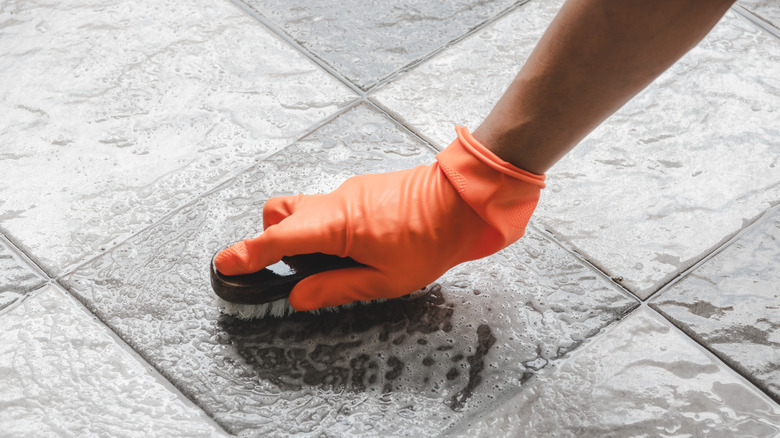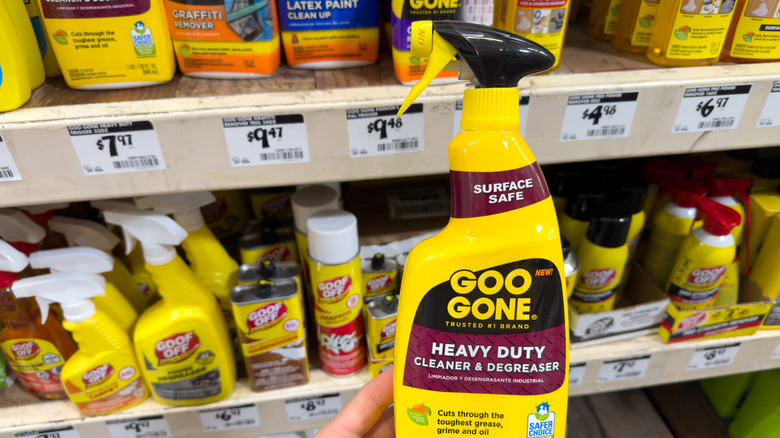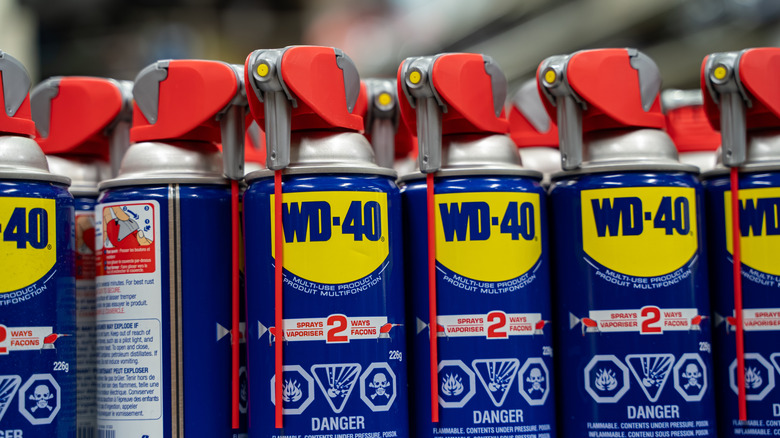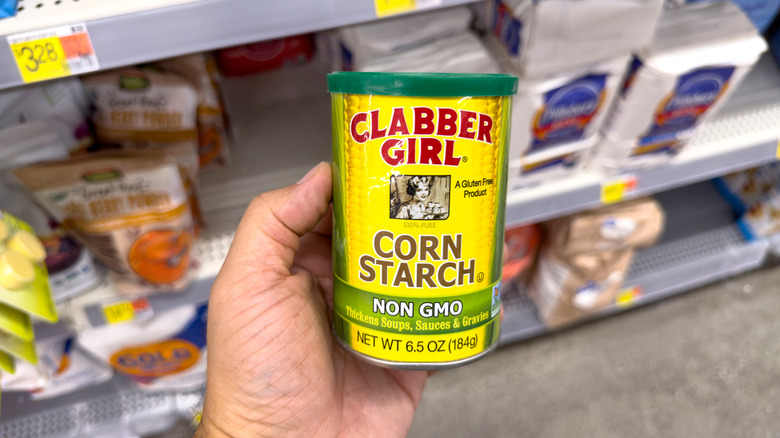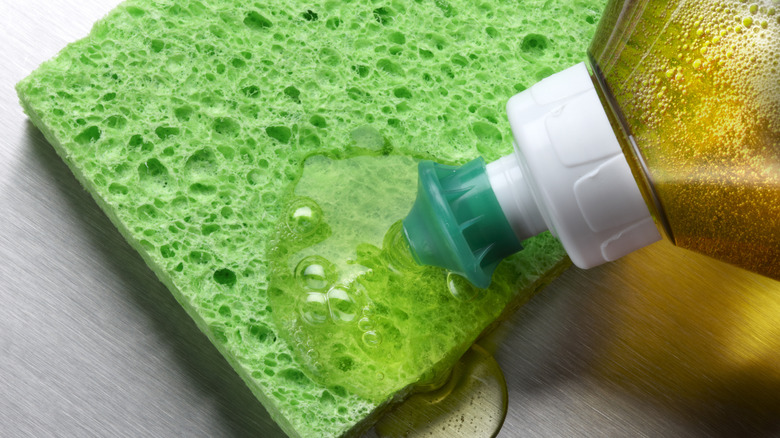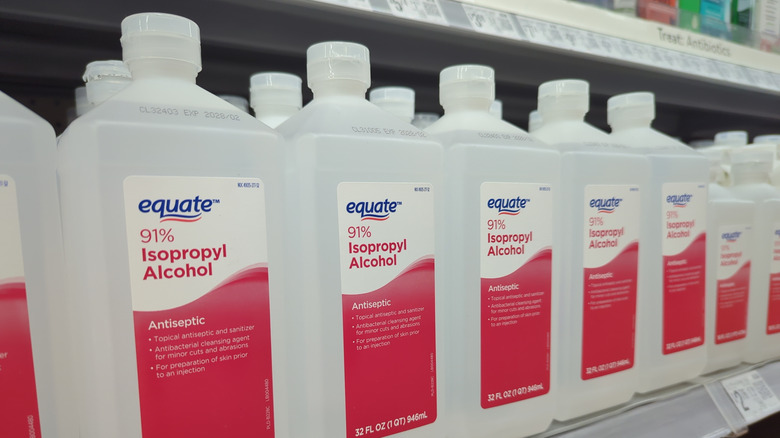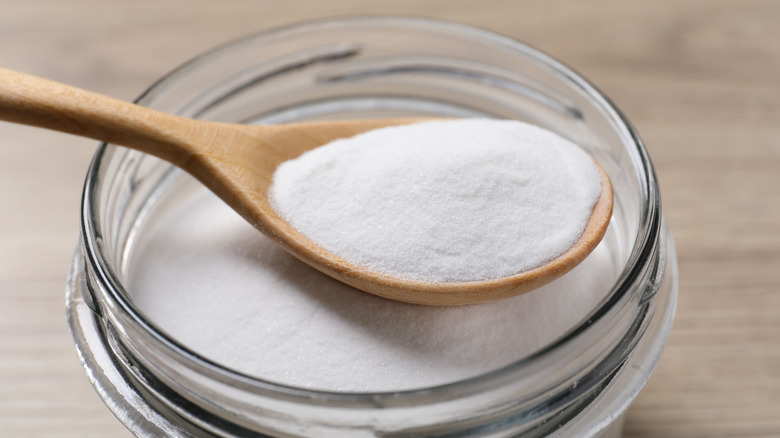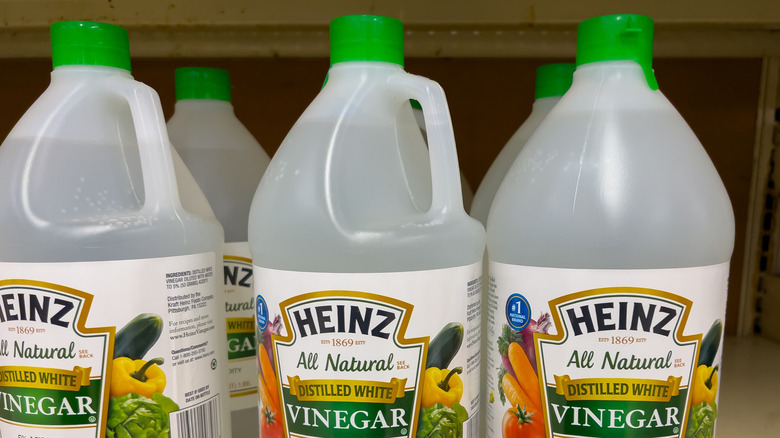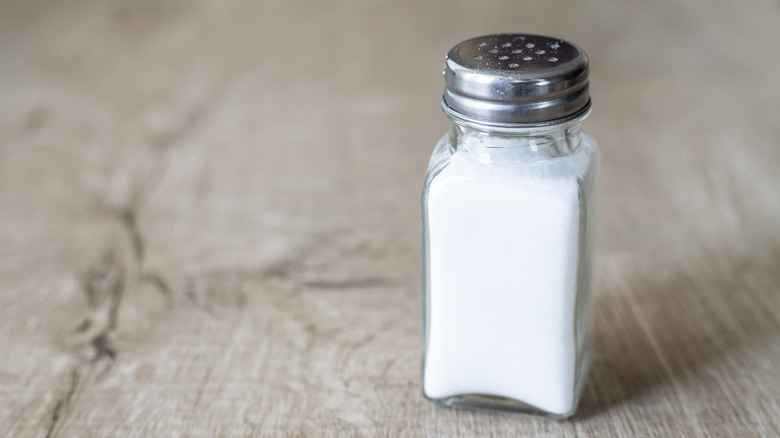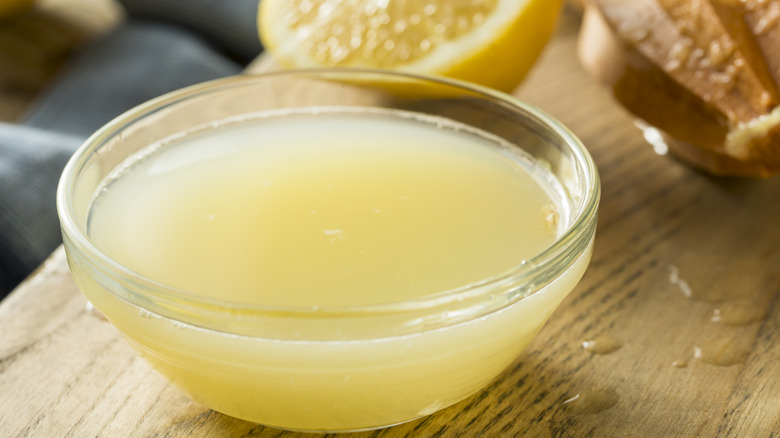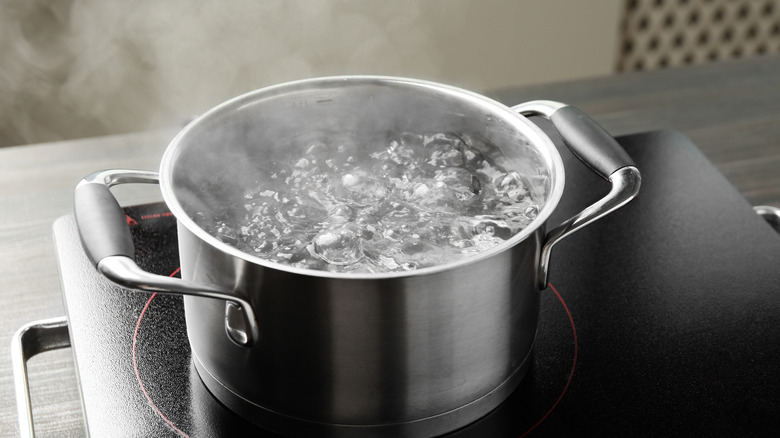10 Easy Ways To Remove Stubborn Grease Stains From Kitchen Floors
When you're cooking with grease in your kitchen, no matter how careful you might try to be, the inevitable happens: Drops of grease spill and splatter onto the floor, staining the surface and creating a wildly slippery obstacle. Whether you have tile, laminate, or wood flooring, grease spots can be tough to clean up. Before you panic about the stains turning permanent, don't worry — you can easily remove grease stains with several unexpected household staples. These spots are simple to wipe up; you just need the right ingredients, and you probably already have most of them in your home. From WD-40 to lemon juice, you can use basic kitchen supplies to remove the grease from your floor. Your chosen DIY grease cleaner will depend on what type of floor you are working with. For example, you should never clean natural stone floors with lemon, as it can erode the material. Before using any of these items, make sure to try a small test spot first.
While you can always purchase a degreaser from the store, it might be worth your while to check your cupboards and pantries first to see if you have any of these products on hand. Chances are, they can get the job done even better than a grease-specific cleaner. Plus, you'll be saving money since you already have the supplies, and you'll use them for other purposes as well.
Degreaser
If you already have a degreasing product on hand, this can be your first line of defense. Brands like Dawn, Goo Gone, and Zep are some of the top-selling degreasers on the market, making removal an easy task. These products typically have high pH levels in order to cut the grease, and according to testing from Serious Eats, the Easy-Off Heavy Duty Degreaser has the highest one at 12.8. To combat stains on your floor, spray the degreaser and allow it to sit on the affected area before wiping up. Do not use a degreaser on hardwood flooring.
WD-40
Besides loosening bolts and oiling squeaky doors, WD-40 also makes for a helpful degreaser solution. While it may not tackle the heaviest of stains, this lubricating product can be used to dissolve light grease spots on your kitchen floor. Be careful not to use too much of this product, as it can add oil and grease back onto the area. The WD-40 brand also carries a specific degreaser product that you can find at your local home improvement store.
Cornstarch
The next time you find a pesky oil splotch, consider cornstarch — it's the ingredient that'll help clean up grease splatters in the kitchen, and it might just be your best bet. This trick works especially well if you have carpet or rugs on your floor. Thanks to its naturally absorbent properties, cornstarch works wonders at soaking up grease. Simply sprinkle the cornstarch over the affected area and let it sit for about 15 minutes. Wipe up the cornstarch, mop your floor, and watch the grease stain fade away.
Dish soap
Dish soap is not only helpful for cleaning grease off your dishes, but it can also clean your floors. If you only have a few areas to spot clean, you can combine a small amount of dish soap and warm water to scrub the solution onto the stain. Rinse and dry afterwards. If you want to clean the entire floor for good measure, mix about 2 tablespoons of dish soap with a gallon of warm water, and use that mixture to mop. Don't use dish soap to clean hardwood floors, as it can leave a residue.
Isopropyl alcohol
Check your medicine cabinet — you may just have an extra bottle of isopropyl alcohol hiding behind your various cleaning and toiletry products. Isopropyl alcohol can easily cut through built-up grime and grease, making it an excellent and affordable option for a DIY degreaser. It's advised to test a small portion of your floor with isopropyl alcohol first before applying it to the rest of the surface, as the product may damage the finishing on some floors. Always use a diluted version of isopropyl alcohol, ideally 70%. Avoid using isopropyl alcohol on hardwood or laminate flooring.
Baking soda
If there's any pantry staple that can clean up a household mess, it's baking soda. This powerhouse product is able to tackle numerous stains, even the oily, greasy ones on your kitchen floor. To use baking soda to remove grease stains, you can create a simple solution by combining baking soda, dish soap, and water. Once you have a paste texture, apply the mix to the stained area and let it sit for about 10 to 15 minutes. Then, use a scrub brush to work the mixture into the stain. Finally, wipe up the mixture and dry.
White vinegar
As expected, vinegar can also be a helpful cleaning agent to rid your kitchen floors of pesky grease stains. All you need is a bottle of white vinegar and a bit of warm water. Mix ½ cup of vinegar with 1 gallon of warm water. You can pour this solution into a spray bottle and apply the mixture onto the grease stain. Allow the solution to sit for a few minutes. To incorporate some extra cleaning power, add baking soda on top before scrubbing the area with a sponge or cloth. Do not use vinegar on natural stone flooring.
Salt
If you accidentally spill grease onto your kitchen floor, you can use salt as a simple and quick solution. Salt can work as a DIY absorbent, helping to soak up the grease. Its abrasive texture also helps to scrape up any tough spots. This trick works even if the grease has been sitting for a while and has started to harden. Sprinkle a small amount of salt onto the affected area. Some experts recommend combining salt with additional ingredients, like rubbing alcohol, dish soap, or baking soda, to help fully remove the stain.
Lemon juice
A few teaspoons of acidic lemon juice could be the answer to removing grease stains on your floor. You can combine this ingredient with an abrasive substance, like baking soda, to help scrape up the grease if it's proving tough to remove. Make a simple paste with the lemon juice and baking soda, and let it sit on the affected area for a few minutes before wiping it up with a damp cloth. Plus, you'll get a fresh lemon scent instead of a harsh chemical aroma. Avoid using lemon juice on hardwood, concrete tile, or natural stone floors.
Hot water
When you use hot water on a tough grease stain, the water is able to melt the grease, liquifying it and making it easy to wipe away. Hot water can dissolve stains and can even clean tough-to-reach areas. For any super sticky stains, you can always add one of the other ingredients on this list as a companion: vinegar, baking soda, or lemon juice. Note that hot water can warp some types of flooring, including sealed hardwood, linoleum, or natural stone floors.
